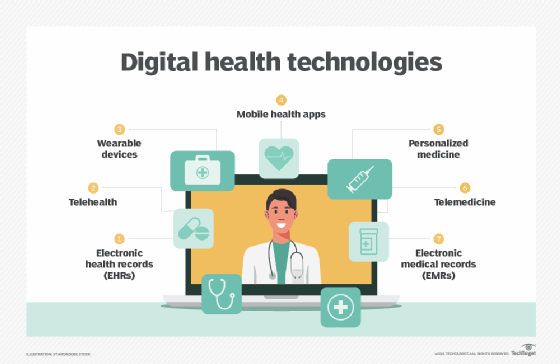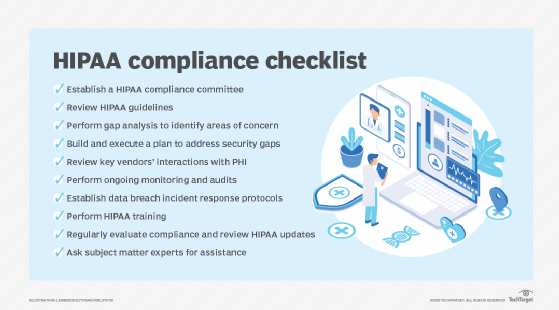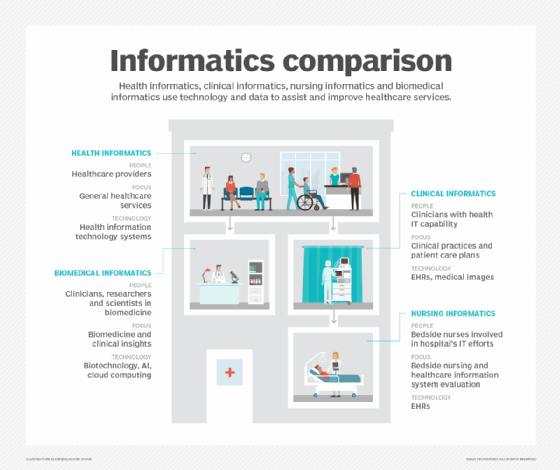healthcare CIO (healthcare chief information officer)
What is a healthcare CIO (healthcare chief Information Officer)?
A healthcare CIO (healthcare chief information officer) is an executive at a healthcare organization that oversees the operation of the information technology department and consults with other C-level personnel on technology-related needs and purchasing decisions.
Healthcare chief information officers are the professionals within a healthcare system who often lead the internal IT department in conversation and planning about how to handle the growing amount of digital data at the disposal of physicians and other employees.
For example, healthcare CIOs might need to help select which data collected by a patient's mobile health (mHealth) device can be used during care or treatment.

Healthcare CIO qualifications
To become a healthcare CIO, individuals typically need a combination of education, experience and specific skills. The following are common qualifications for this role:
Educational background
Most healthcare CIOs hold at least a bachelor's degree in information technology, computer science, healthcare administration, or a related field. However, many healthcare CIOs also possess a master's degree in business administration (MBA), healthcare management, or a similar discipline, which provides them with a deeper understanding of digital health and the intersection between technology and healthcare.
Professional experience
CIOs in the healthcare industry require extensive experience in IT, particularly in healthcare IT settings, which is crucial. This includes experience with electronic health record (EHR) systems, healthcare data management, and IT infrastructure.

Additionally, prior experience in leadership positions, such as IT director or IT manager, helps build the necessary skills for overseeing large teams and managing complex projects.
Key skills of healthcare CIO
Finally, a top-performing healthcare CIO should have the following capabilities:
- Strategic thinking. Healthcare CIOs must be able to develop and implement long-term technology strategies that align with organizational goals.
- Communication. Strong communication skills are essential for collaborating with other C-level executives, healthcare providers, and IT staff.
- Problem-solving. The ability to identify and address technology-related issues and challenges is critical.
- Regulatory knowledge. Familiarity with healthcare regulations, such as the Health Insurance Portability and Accountability Act (HIPAA) and the Health Information Technology for Economic and Clinical Health (HITECH) Act, is important for ensuring compliance and data security.
- Financial acumen. Understanding budgeting and financial management is necessary for making cost-effective technology investments.

The many roles of the healthcare CIO
The role of healthcare CIO involves many responsibilities, which are constantly evolving.
Specifically, with the advent of newer technologies, healthcare CIOs are increasingly involved in implementing artificial intelligence (AI) and machine learning applications in healthcare to improve patient outcomes and streamline operations. These technologies assist with predictive analytics, patient diagnosis and personalized treatment plans.
Role of a healthcare CIO in supporting advanced patient care
A healthcare CIO might also have a say in how and if a healthcare facility decides to support newer technologically advanced patient care modalities, such as telemedicine and remote patient monitoring. Healthcare CIOs help determine if the resources needed to acquire and install new software or medical equipment are worth the investment.
How long it will take to train employees and the disruption the learning process will present to the patient care workflow are other considerations that should be measured by CIOs before committing to a new technological project or system update.
Additionally, healthcare CIOs are crucial in managing cybersecurity threats, ensuring that patient data is protected against breaches and unauthorized access. This includes implementing advanced encryption techniques and regular security audits.

Role of a healthcare CIO in promoting interoperability
Many healthcare CIOs have played a role in helping their organizations join health information exchanges to promote better interoperability, or inter-system sharing, of patients' EHRs.
The push for interoperability has been further emphasized by recent regulatory requirements such as the 21st Century Cures Act, which mandates easier access to electronic health information for patients and providers. Healthcare CIOs are pivotal in aligning their systems with these regulations to ensure compliance and enhance care coordination.
Role of a healthcare CIO in decision-making and budget allocation
Healthcare CIOs often play a large part in buying decisions for healthcare organizations by determining where the budget should be spent. Maintaining HIPAA compliance and preparing for the transition to the International Classification of Diseases, 10th Revision (ICD-10) medical coding set are some current goals that many healthcare organizations have in mind.
Strengthening organizational control of protected health information, migrating storage or other services to the cloud, and buying an analytics product or software are other areas in which healthcare CIOs have a say.
More recently, healthcare CIOs have been involved in digital transformation initiatives, such as adopting EHR systems, integrating telehealth services and deploying mobile health applications to enhance patient engagement and accessibility to care.

The impact of the HITECH Act
The role of the healthcare CIO changed after the passage of the HITECH Act in 2009, which was created to promote the adoption of healthcare technology. The HITECH Act also spawned the meaningful use program, which the Centers for Medicare & Medicaid Services administrate.
Healthcare providers that have deployed EHR systems are eligible to receive incentive payments for attesting to meaningful use criteria.
Recently, the meaningful use program has evolved into the Promoting Interoperability Programs, which continue to incentivize the use of certified EHR technology to improve healthcare quality, safety and efficiency.
Professional organizations and resources for healthcare CIOs
The College of Healthcare Information Management Executives (CHIME) is a professional group composed of more than 1,400 members, many of whom are healthcare CIOs. CHIME members come from across the spectrum of healthcare organizations including clinics, physician groups, health information exchanges, hospitals, and government agencies.
CHIME continues to provide valuable resources, networking opportunities and educational programs for healthcare CIOs to stay current with industry trends and advancements. The organization also advocates for policies that support healthcare IT initiatives.
The role of the healthcare CIO is ever-evolving, with responsibilities expanding to include advanced technological implementations, cybersecurity, regulatory compliance and strategic decision-making. As healthcare continues to advance, the role of the CIO will remain critical in navigating the complexities of healthcare IT and ensuring the efficient and secure management of patient data.
Deploying big data analytics in healthcare might be challenging but employing a few key strategies can ease the transition. Explore emerging strategies to advance big data analytics in healthcare.






